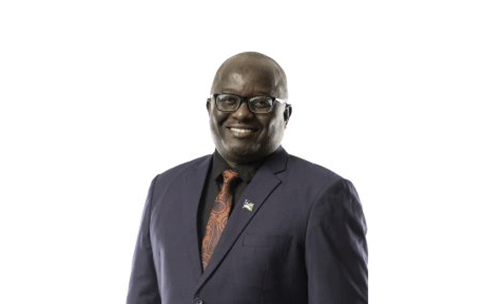Lahja Nashuuta
The Landless People’s Movement (LPM) has firmly rejected the proposed national budget currently under review in the National Assembly, with party member Eneas Shivolo Emvula declaring it disconnected from the realities faced by ordinary Namibians.
Speaking during the debate last week, he said, “On behalf of my political party, I cannot, in good conscience, support this budget in its current form. It is a document devoid of revolutionary intent, a budget of complacency, not courage; a budget of control, not change.”
He continued, emphasising that until the budget reflects the true interests of the people by prioritising land reform, food sovereignty, housing, jobs and education, the LPM rejects it.
“Our people deserve more than rhetoric. They deserve a government ready to deliver the full promise of liberation,” said the LPM member.
Emvula criticised the purported continued failure to tackle critical issues such as youth unemployment and child labour.
“The scourge of child labour in Namibia lays bare the moral bankruptcy of a government that has abandoned its most vulnerable,” he said.
He recounted a recent encounter in the Rundu Rural constituency, where he met 14-year-old Absalom from Oshifo, working at the Etunda Irrigation Scheme, not by choice, but out of sheer necessity to support his family.
“This is not an isolated tragedy; it is the lived reality of thousands of Namibian children, robbed of their right to a dignified childhood,” Emvula narrated.
Citing Article 15(2) of the Namibian Constitution, which guarantees a child’s right to education and protection from economic exploitation, he accused the government of turning a blind eye to its constitutional obligations.
“This is not just a policy failure, it is structural violence,” he charged.
“A liberation government that presides over such injustice cannot, in good conscience, claim to govern for the people. This is a betrayal of the revolution, a failure of statehood, and a damning indictment of the ruling class,” he said.
“The failures of this government are not accidental; they are calculated acts of omission, designed to preserve a decaying status quo for party-political expediency.”
He criticised the youth employment programmes, saying they have largely been absorbed into the bloated security sector, funnelling young people into militarised structures of surveillance rather than economically-productive industries.
He also accused the government of seeking to pacify and neutralise the youth, preventing them from organising against structural poverty, unemployment and exclusion. He called for transformative programmes to unlock the productive potential of young people, and channel it toward nation-building.
“The State’s current approach is exploitative, mobilising the youth only during elections, and discarding them thereafter. We need a revolutionary shift in priorities. We must amplify the voices of the marginalised, not as tokens, but as rightful stewards of this land,” he urged.
Emvula also highlighted the dire need for a robust land and housing programme:
“In Windhoek and other impoverished townships, Namibians are living in riverbeds and makeshift shelters, exposed to the brutal realities of climate change and economic neglect. Year after year, the State responds with photo opportunities and short-term remedies. This is not governance; it is negligence dressed as bureaucracy,” he said.
“We demand not charity but a sustained, State-led housing and urban transformation plan, one that offers dignity, not tarpaulin. We are not asking for miracles; we are demanding that the State fulfil its most basic constitutional obligations to its people,” he said.
-lnashuuta@nepc.com.na


